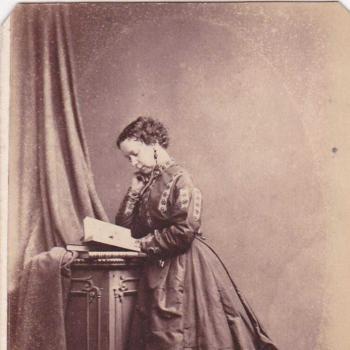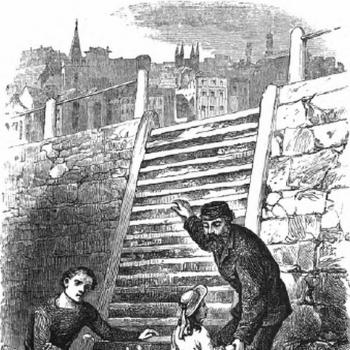Mrs William Sharshaw
A brief obituary of a pioneering woman, from The Monthly Illustrated Journal (the Guernsey Magazine), February 1889. Mary Esther Sharshaw, born in October 1821, daughter of Henry Cumber and Mary Gallienne, was a pharmacist. The obituary does not mention that she came from two families of prominent Quakers. The two photographs of Mary, which are reproduced courtesy of their owner, both show her with a book. In the lower picture she is sporting a fine calabash, a typical Guernsey ladies' hat; the photograph is by her sister, the Guernsey photographer Sarah Louise Cumber.


